the health strategist
platform
the most compreehensive knowledge portal
for continuous health transformation
and digital health- for all
Joaquim Cardoso MSc.
Chief Research and Strategy Officer (CRSO),
Chief Editor and Senior Advisor
December 20, 2023
What is the message?
The central message of this summary is that climate change is significantly impacting global health, with a focus on the disproportionate effects on vulnerable populations, especially in low- and middle-income countries.
The Phase 2 Health Inclusivity Index reveals the immediate and measurable ways in which climate change is exacerbating health disparities, affecting food security, income sources, and living conditions.
Marginalized groups, including migrants and refugees, face greater health impacts, leading to significant health inequities.
The index also highlights the rising eco-anxiety among younger generations and emphasizes the critical link between climate change, health disparities, and the policy-implementation gap, posing a threat to health inclusivity worldwide.

Executive summary
Premature deaths linked to climate change are on the rise and over 90% of these deaths occur in developing economies. From the rise of pollution and infectious disease prevalence to food insecurity and increased stress on healthcare systems, the interconnectivity between climate change and health is undeniable—and climate change is exacerbating existing health disparities. Marginalised groups, vulnerable populations and people living in lower-income economies, who are already more susceptible to major systemic shocks, experience disproportionate climate change-related economic and health consequences, and are bearing the brunt of the burden.
The Phase 2 Health Inclusivity Index assesses the extent to which 40 countries have taken steps to ensure that good health is accessible to all individuals. It considers both the policy environment for health inclusivity and whether populations are feeling the impacts of this policy on the ground, allowing us to quantify health disparities. Through a global survey of over 42,000 people across the index countries and a series of focus group discussions with marginalised populations, the index captures lived experiences of health inclusion—and exclusion—and explores how populations perceive the impacts of climate change on their health. The study provides unique insights on the impact of climate change on populations around the world, including how they are affected today and their concerns about future impacts.
Key findings
People in low- and middle-income countries are more affected by climate change in immediate and measurable ways.
Low- and middle-income countries bear the brunt of climate change effects, with seven in ten respondents expressing concerns about the impacts of climate change on their health, compared with six in ten respondents in high-income nations. Respondents in low- and middle-income countries were also more likely to report that climate change has negatively affected their food security, source of income and ability to keep a comfortable temperature at home.
Marginalised populations—especially migrants and refugees—face greater climate- related health impacts.
Although the survey revealed minor differences in the perceived impact of climate change across all marginalised groups, certain groups indicated greater health impacts. Migrants and refugees experience greater barriers to health and more climate change-related effects, resulting in more significant health inequities between these groups and non-marginalised populations. Refugees, asylum-seekers and displaced persons were 22 percentage points more likely to report that climate change has negatively impacted the availability of food in their communities compared with non-marginalised groups. Migrants were 10 percentage points more likely to have this experience.
Younger generations are more worried about the impact of climate change than older generations.
As the threat of climate change grows, eco-anxiety—distress related to the effects of climate change—is on the rise. Gen Z and Millennials, in particular, express heightened concern about the increasing impacts of climate change. Over three-in-five (62%) Millennials and 58% of Gen Z respondents agreed that climate change is likely to impact their health for the worse in the future, compared with 54% of older generations. Eco-anxiety and general concern about the effects of climate change have been found to increase the incidence of mental health issues across these populations.
In addition to highlighting the ways in which climate change is driving health disparities, the Health Inclusivity Index finds that the gap between health policy and implementation disproportionately impacts marginalised groups. Combined, climate-change effects and the policy-implementation gap exacerbate health inequities for marginalised groups and put health inclusivity at risk. This article provides a deep dive into the climate- and health-related findings of the Phase 2 Health Inclusivity Index.
Infográfico

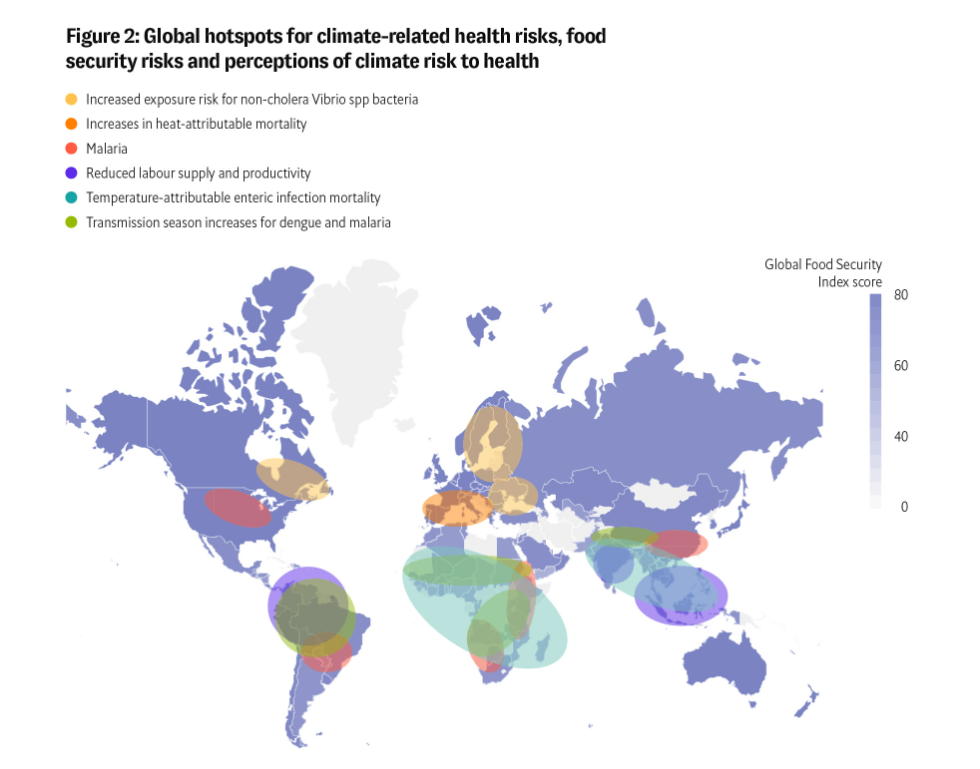
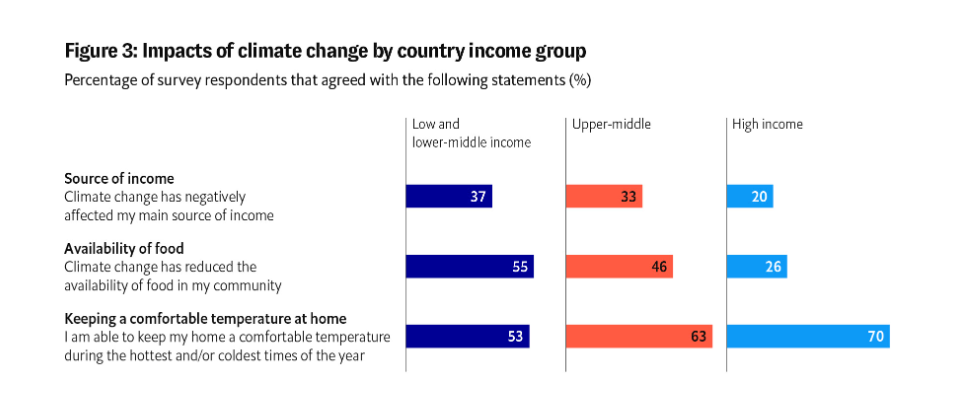

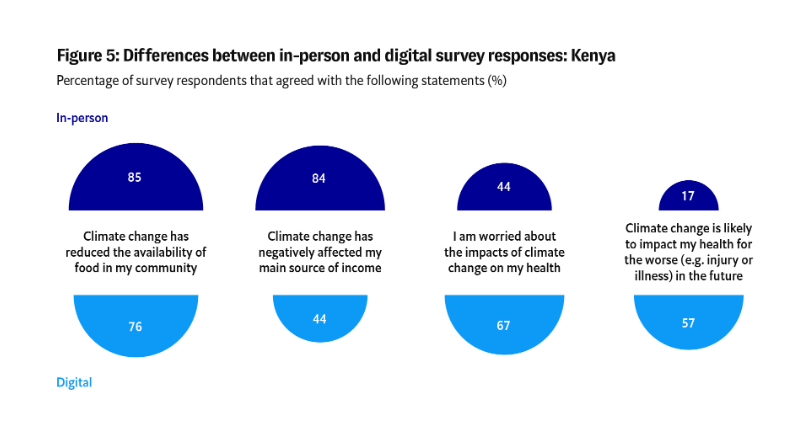
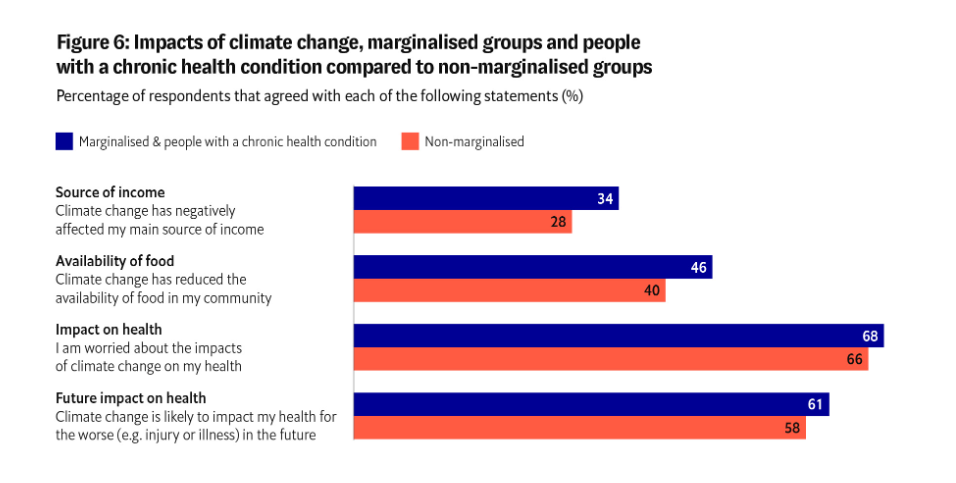
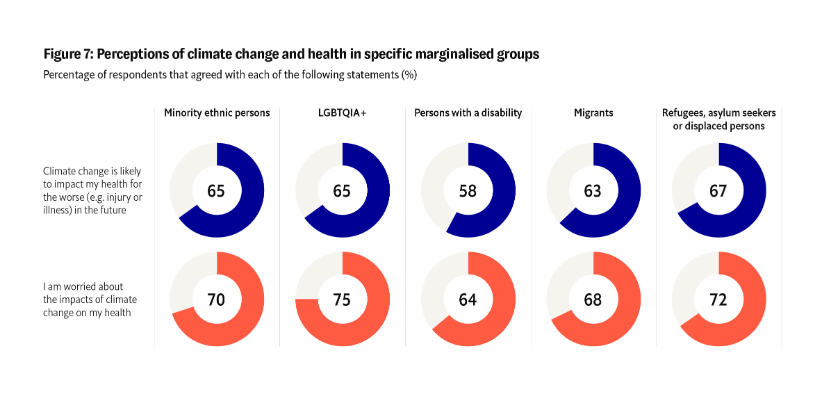
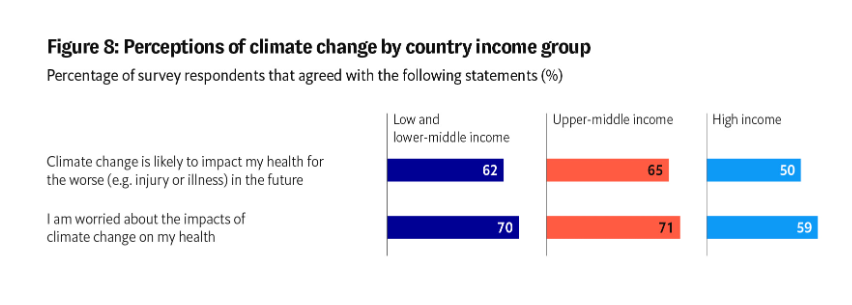
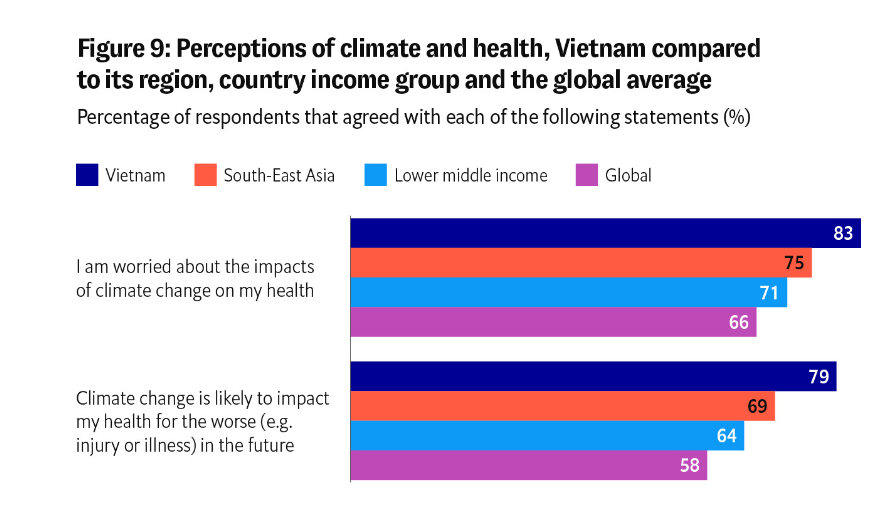
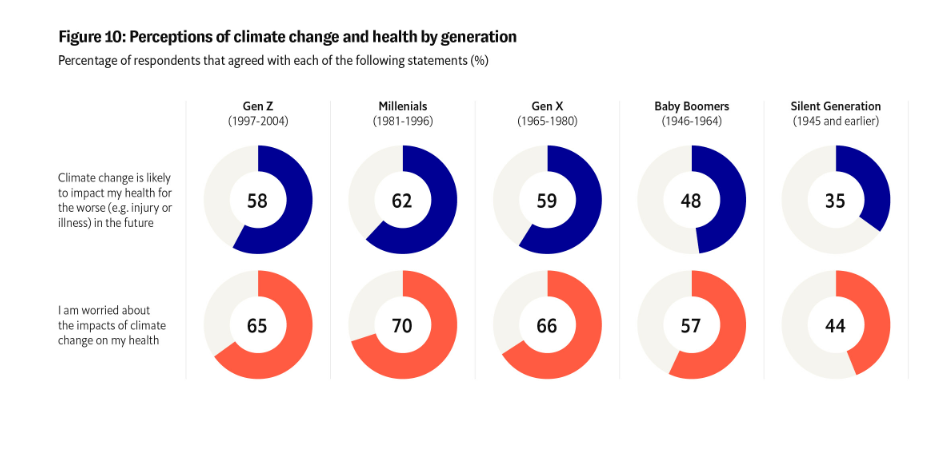
DEEP DIVE
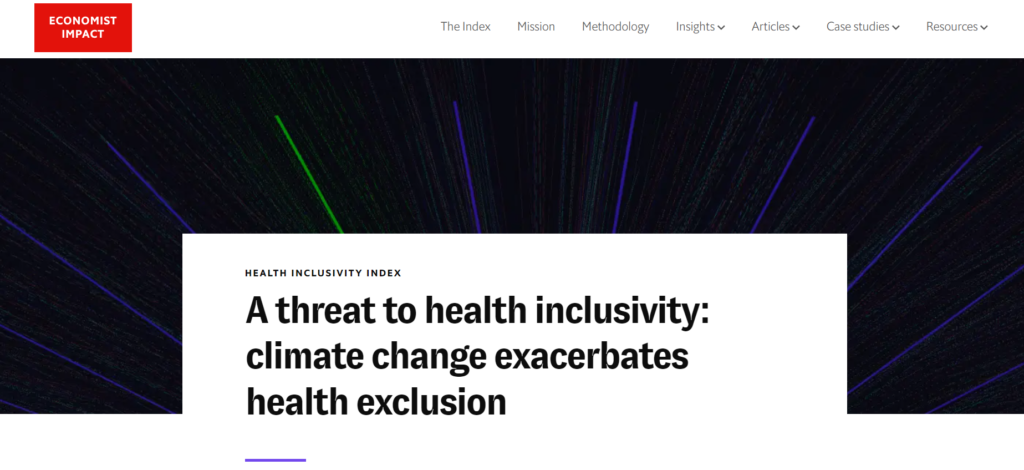
This summary is based on the article “A threat to health inclusivity: climate change exacerbates health exclusion”, published by Economist Impact and written by Prof Dr Jemilah Mahmood and Jeni Miller, on December 18, 2023.
To read the original publication, click here.
Download the complete paper here.











